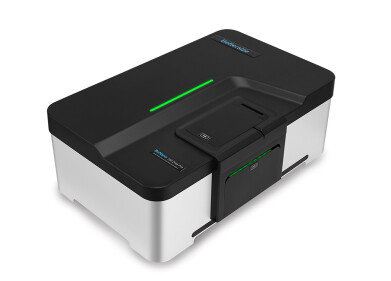Laboratory Products
Coronavirus: Do Facemasks Work?
Mar 20 2020
In the wake of the global COVID-19 crisis, people have been scrambling for ways to protect themselves against the virus. Unsurprisingly facemasks have been flying of the shelves, sparking a worldwide shortage. While they're one of the most obvious forms of defence against infectious diseases, questions have been raised over whether facemasks actually work.
While facemasks can stop infected droplets from reaching the face, COVID-19 can also be passed on through the eyes and via miniscule viral particles that can penetrate masks. Experts say they're far more effective when worn by medical professionals in close contact with patients, or infected people attempting to avoid spreading the virus, not everyday citizens wanting to protect themselves against the virus.
Researchers report "no significant difference in the effectiveness" between masks
There's also been debate over whether tight-fitting N95 respirators designed to block 95% of airborne particles are more effective than conventional facemasks. A recent study from the UT Southwestern Medical Centre shed light on the discussion, with the team reporting "no significant difference in the effectiveness" of medical masks vs. N95 respirators.
"This study showed there is no difference in incidence of viral respiratory transmission among health care workers wearing the two types of protection," says Dr. Trish Perl, senior author of the report and Chief of UT Southwestern's Division of Infectious Diseases and Geographic Medicine. "This finding is important from a public policy standpoint because it informs about what should be recommended and what kind of protective apparel should be kept available for outbreaks."
Finding the right mask for the job
The concept of tighter-fitting N95 respirators was introduced to the American healthcare system in 2009 following an outbreak of H1N1, also known as swine flu. A large study found that almost 30% of medical personnel contracted the disease, which prompted the U.S. Centres for Disease Control and Prevention (CDC) to recommend using N95 respirators. The new study from UT Southwestern Medical Centre challenges the recommendation, reporting 207 laboratory-confirmed cases of influenza infections in groups wearing N95 masks compared to 193 cases for groups wearing simple medical masks.
"The takeaway is that this study shows one type of protective equipment is not superior to the other," says Perl. "Facilities have several options to provide protection to their staff - which include surgical masks - and can feel that staff are protected from seasonal influenza. Our study supports that in the outpatient setting there was no difference between the tested protections."
In the wake of the COVID-19 pandemic, hygiene has become front of mind. To find out more about the measures laboratories are using to minimise cross-contamination risk, enhance user safety and increase operating reliability, don't miss 'Proven Cleaning Procedures For Lab Balances and Safety Cabinets.'
Digital Edition
ILM 49.5 July
July 2024
Chromatography Articles - Understanding PFAS: Analysis and Implications Mass Spectrometry & Spectroscopy Articles - MS detection of Alzheimer’s blood-based biomarkers LIMS - Essent...
View all digital editions
Events
ACS National Meeting - Fall 2024
Aug 18 2024 Denver, CO, USA
Aug 25 2024 Copenhagen, Denmark
Aug 28 2024 Phnom Penh, Cambodia
Sep 04 2024 Chiba, Tokyo, Japan
Sep 04 2024 University of Warwick, Coventry, UK


















